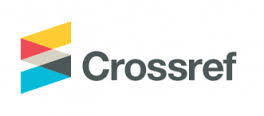The Impact of Teaching Methods of Vocational Education Teachers on Acquiring Vocational Skills Among Students
DOI:
https://doi.org/10.59759/educational.v4i3.1012Abstract
The current study aimed to reveal the impact of teaching methods among vocational education teachers in acquiring vocational skills in light of some variables, and to reveal the extent of the impact of teaching methods on vocational skills among students. The study sample consisted of (1107) participants (169 teachers, 938 students). The results of the study showed that the level of teaching methods for teachers and vocational skills for students was medium, and that vocational education teachers use a variety of teaching methods, some of which are traditional, and others are modern, and that the methods (practical presentation, project method, calculated presentations, field trips) are the most common among vocational education teachers. The results of the study showed a statistically significant effect of the methods (practical presentation, project method, calculated presentations, field trips) on vocational skills among students. The results also showed statistically significant differences in the level of teaching methods attributed to the gender in favor of females, in academic qualification in favor of PhD, and in years of experience in favor of 10 years or more. The results also showed that there were no statistically significant differences in the level of teaching methods attributed to the salary (Keywords: teaching methods, vocational education teachers, vocational skills).
Downloads
References
- Abassah, M. (2011). Technical college teachers in Nigeria: Issues, problems and challenges. Mediterranean Journal of Social Sciences, 2(7), 57-62.
- Ajibola, M. (2008). Innovations and curriculum implementation for basic education in Nigeria: Policy priorities and challenges of practices and implementation. Research Journal of international studies, 8(5), 51- 58.
- Alseddiqi, M. & Mishra, R. (2010). A diagnostic study on the teaching and learning styles in engineering education. Computing and engineering researchers' conference. Dec 2010. University of Huddersfield, UK.
- Audu, R., Kamin, Y., Musta’amal, A. & Bin Saud, M. (2014). Assessment of the teaching methods that influence the acquisition of practical skills. Asian Social Science, 10 (21), 35-41.
- Billett, S. (2011). Learning in the circumstances of work: The didactics of practice. Education &Didactique, 5(2), 129-149.
- Carroll, D. (2014). Skills for academic and career success. Australia: Pearson Australia.
- Cassel, L. & Reis, R. (2013). Informatics curricula and teaching methods. USA: Springer.
- Eraut, M. (2004). Informal learning in the workplace. Studies in Continuing Education, 26(2), 247-273.
- Ferguson, R. (2007). Foundational skills: The currency that purchases opportunity in tomorrow’s workplace techniques. Techniques: Connecting Education & Careers, 82(6), 62-67.
- Harris, R. & Taylor, A. (2016). Aligning vocational education and training to contemporary industry needs: The case of construction. Journal of Vocational Education & Training, 68(2), 139-157.
- Hazaimeh, Z. & Ajlouni, B. (2023). Vocational education students’ acquisition of practical skills at irbid national university in Jordan. Journal of Southwest Jiaotong University, 58 (2), 439-451.
- Idris, A. & Rajuddin, M. (2012). The influence of teaching approaches among technical and vocational education teachers towards acquisition of technical skills in Kano state-Nigeria. Journal of Education and Pracetice, 3 (16), 160-165.
- Johannsen, M. (2012). Three Key Skills Needed Inside Organizations. California: Legacee.
- Johnson, R. & Brown, S. (2020). Pedagogy meets praxis: Navigating the challenges and opportunities of practical application in online courses. Journal of Education for Business, 95(5), 276-284.
- Joseph, E. & Godstime, T. (2016). Strategies of effective teaching and learning practical skills in technical and vocational training programmes in nigeria. International Journal of Scientific Research Engineering & Technology (IJSRET), 5 (12), 598-603.
- Kennedy, O. (2011). Reappraising the work skill requirements for building technology education in senior secondary school for optimum performance in Nigeria. European Journal of Applied Sciences, 3 (2), 46-52.
- Kulturel-Konak, S., Konak, A., Okudan Kremer, G. & Esparragoza, I. (2015). Professional skills assessment: Is a model of domain learning framework appropriate?. International Journal of Quality Assurance in Engineering and Technology Education, 4(1), 33-60.
- Kurt, U. & Sezek, F. (2021). Investigation of the effect of different teaching methods on students’ engagement and scientific process skills. International Journal of Progressive Education,17 (3), 86-101.
- Kushwaha, R. (2024). Skill development and vocational training. Uttar Pradesh: Shree vinayak publication.
- Maclean, D. & Kerre, B. (2009). A technical and vocational teacher-training curriculum international handbook of education for the changing world of work. Springer Science+Business Media, 8(12), 1319-1332.
- Maclean, R. & Wilson, D. (Eds.). (2009). International handbook of education for the changing world of work: Bridging academic and vocational learning. Dordrecht: Springer Science and Business Media.
- National Open University of Nigeria - NOUN (2008). Business education methods. Published by national open university of Nigeria.
- National Policy of Education (2004). Federal Republic of Nigeria. Lagos: NERDC Press.
- Nguyen, T., Nguyen, H., Cao, C. & Vu, H. (2023). Activities of the practice teaching organization and vocational teaching facilities in collaboration between the vocational school and units employing. Journal of Education and E-LearningResearch, 10(2), 243–249.
- Nnachi, R. (2008). Sex education in Nigeria school: A psychological position. Owerri: Barloz Publishers
- Oduolowu, E. (2007). A comparison of the universal basic education (ube) programme in Nigeria and the grundskola of Sweden. Essays in Education, 20, 90-93.
- Omo-Ojugo, O. & Ohiwerei, O. (2008). School factors affecting the teaching and learning of business education studies in Nigeria schools. Pakistan Journal of social studies,5 (7) 663-675.
- Osakinle, E., Onijigin, E.& Falana, B. (2010). Teaching methods and learners’ environment in a Nigerian university. African Journal of Basic & Applied Sciences, 2 (1-2): 7-10.
- Peter, O., Abiodun, A. & Jonathan, O. (2010). Effect of constructivism instructional approach on teaching practical skills to mechanical related trade students in western Nigeria technical colleges. International NGO Journal, 5(3), 059-064.
- Rau, D., Chu, S., Lin, Y. & Chang, M. (2006). Development and teaching approaches of technical and vocational education curricula. 9th International Conference on Engineering Education. July 23 – 28, 2006. San Juan, PR
- Shiyan, W. (2010). Teaching methods for a school-based curriculum-IEEE. International conference on networking and digital society. (ICNDS). China, 30-31 May, Volume 2, 508-511.
- Smith, B., MacGregor, J., Matthews, R. & Gabelnick, F. (2004). Learning communities: Reforming undergraduate education. Hoboken: Jossey-Bass.
- Suleiman, S., Abdullahi, M., Garba, A. & Habiba, M. (2024). Effect of traditional learning methods on the development of practical skills among students at ramat polytechnic, Maiduguri, Borno State. ARCN International Journal of Sustainable Development, 14 (1), 145-157.
- Swargiary, K. & Roy, K. (2023). Transforming education: Innovative teaching methods for empowering students in India. India: Dodo Books
- Zhang, C. (2019). Skill acquisition (pp. 272). In D. Hackfort, R.J. Schinke, & B. Strauss (Eds.), Dictionary of Sport Psychology: Sport, Exercise, and Performing Arts. London, UK: Academic Press.


